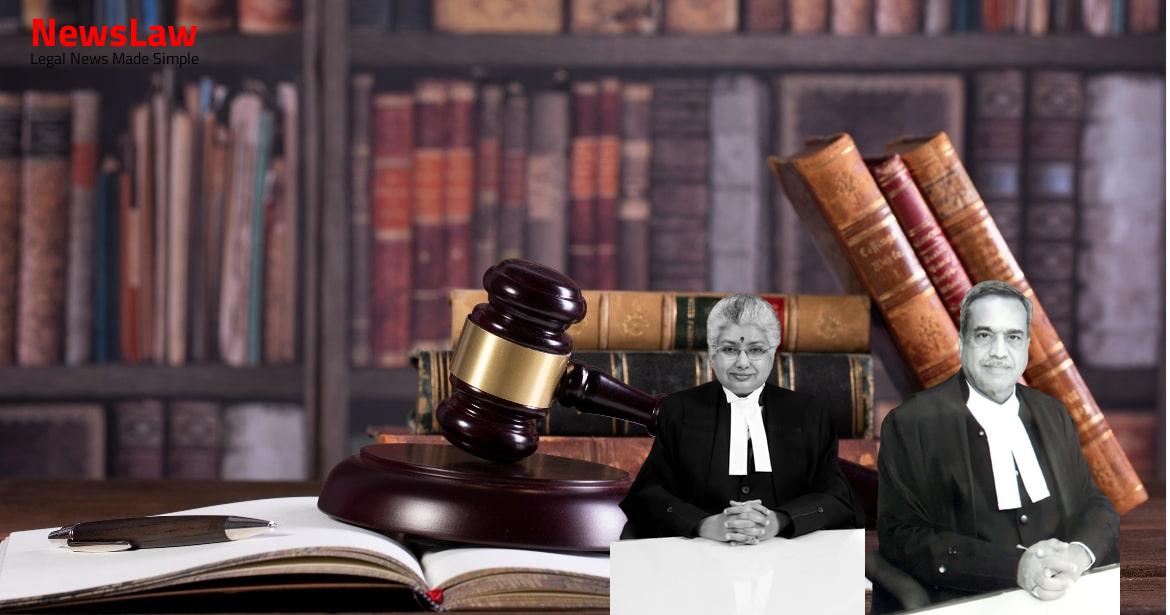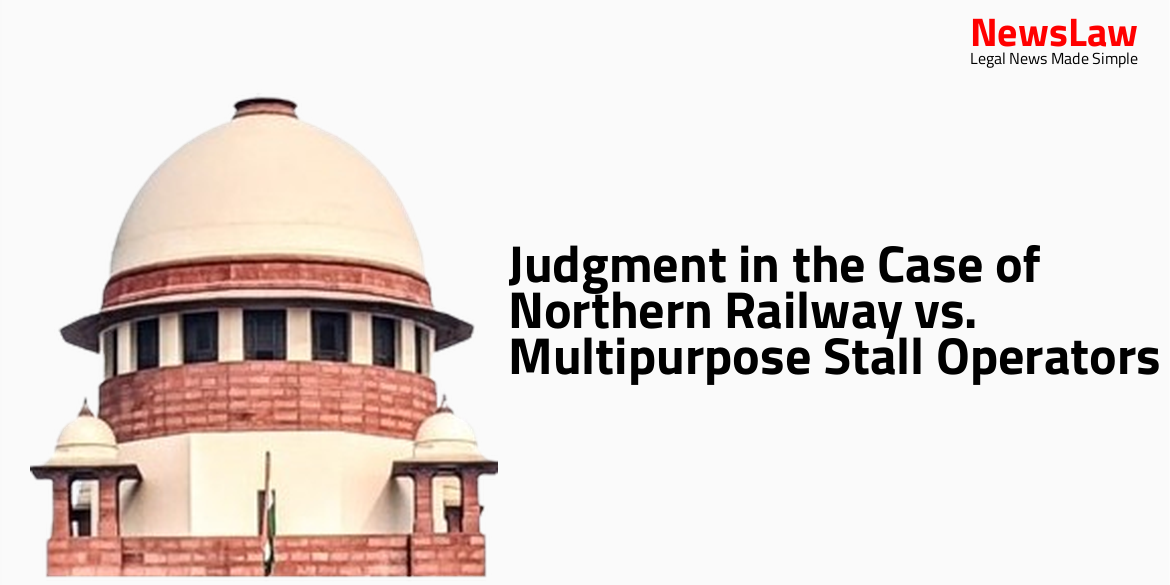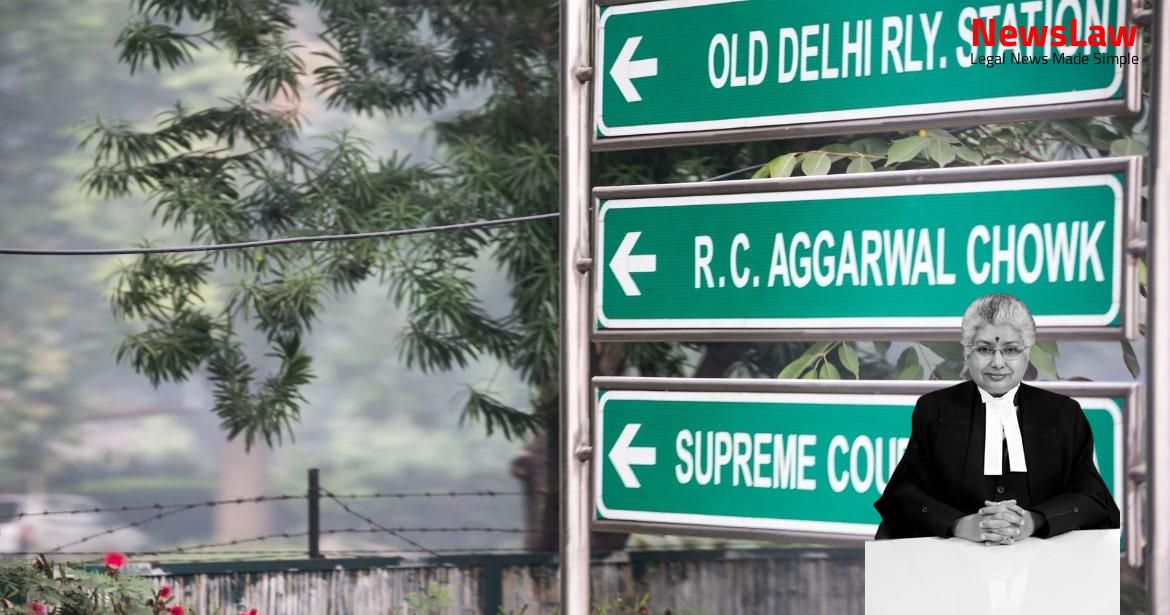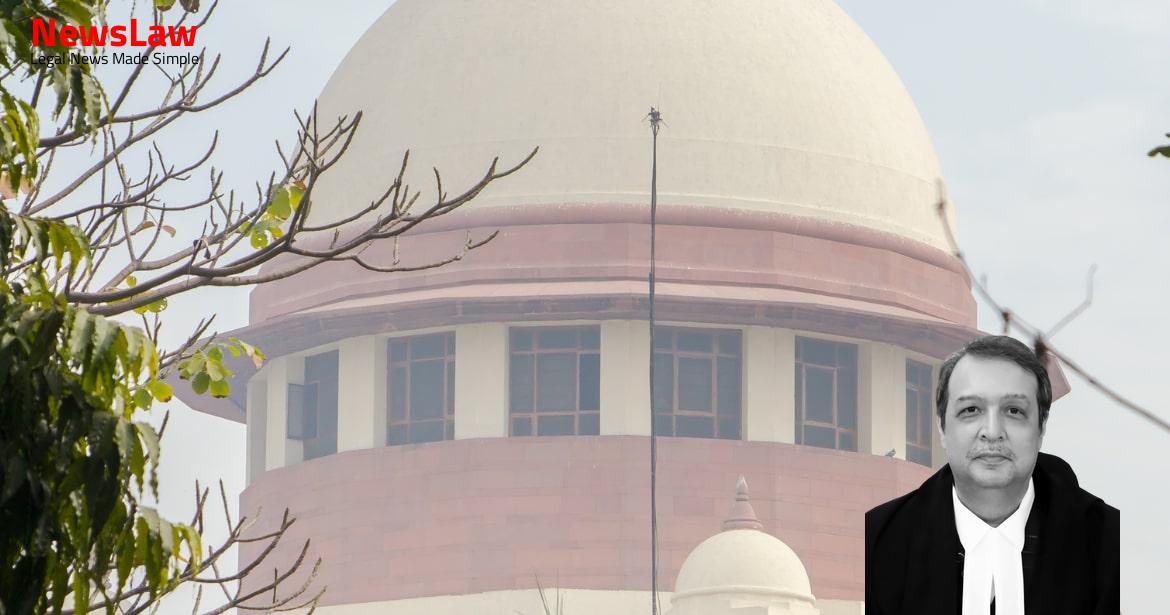Explore a detailed legal analysis of a recent court case where the rejection of a plaint under Order VII Rule 11 was scrutinized. The court’s examination of limitation issues and the maintainability of the suit sheds light on crucial aspects of procedural law. Stay tuned to understand the significance of the court’s decision in this case.
Facts
- The original plaintiffs filed a Title Suit No. 166 of 2010 against the original defendants seeking declaration of right, title, and interest in the suit property.
- The plaintiffs also sought confirmation of possession as part performance of a contract dated 28.4.1995 under Section 53A of the Transfer of Property Act.
- Additionally, they requested enforcement of the agreement dated 28.4.1995 for the execution and registration of a Deed of conveyance in their favor.
- The plaintiffs further asked for a permanent order of injunction to prevent interference or obstruction in their peaceful possession of the property.
- They also sought temporary injunction with ad-interim Rule for similar protection.
- The High Court quashed and set aside the order passed by the trial court
- The application under Order VII Rule 11 CPC was allowed
- The plaint was rejected on the grounds of being barred by limitation
- The suit for a declaration under Section 53A of the Transfer of Property Act was deemed not maintainable against the actual owner
- The original defendants filed a revision application before the High Court against the trial court’s decision
Also Read: Ruling on Circumstantial Evidence in Murder Case
Arguments
- The plaintiffs claimed relief in the suit invoking Section 53A of the Transfer of Property Act and prayed for permanent injunction.
- A suit for declaration under Section 53A of the Transfer of Property Act is deemed maintainable.
- Reference made to the decision in the case of Ram Prakash Gupta vs. Rajiv Kumar Gupta and Ors. (2007) 10 SCC 59 for support.
- The High Court is accused of exceeding jurisdiction by rejecting the plaint under Order VII Rule 11 CPC.
- Importance of considering the suit averments and the entire plaint not acknowledged by the High Court.
- Limitation issue considered a mixed question of law and facts, should not have led to plaint rejection.
- Appellants challenge the rejection of the plaint based on limitation and maintainability of the suit under Section 53A of the Transfer of Property Act.
- The suit was barred by limitation, hence liable to be rejected under Order VII Rule 11(d) of CPC.
- Citing the case of Delhi Motor Company Vs. U.A. Basrurkar, AIR 1968 SC 794 and the Privy Council judgment, it was argued that a suit for a declaration under Section 53A of the Transfer of Property Act would not be maintainable.
- The counsel for the defendants supported the High Court’s judgment which rejected the plaint, asserting that the cause of action arose in 2004 as per the plaintiffs’ own averments.
- The High Court’s decision in allowing the application under Order VII Rule 11 CPC and rejecting the plaint was deemed appropriate as the suit was clearly barred by limitation, having been filed in 2010 for a cause of action that arose in 2004.
Also Read: Challenging Legal Presumptions in Negotiable Instrument Cases
Analysis
- While deciding the application under Order 7 Rule 11, it is proper to verify the entire plaint averments.
- The High Court set aside the trial court’s order and rejected the plaint on the grounds of limitation and maintainability of the suit for a declaration under Section 53A of the Transfer of Property Act.
- The High Court only considered specific averments in paragraph 4 and not the entire plaint, which is not the correct approach.
- Court must consider the entire plaint averments and not reject the plaint based on isolated passages.
- The suit for a decree of permanent injunction cannot be said to be barred by limitation if possession is claimed and ongoing for more than twelve years.
- A plaint can only be rejected if the suit is clearly barred by limitation on the face of it.
- The necessary averments in the plaint concerning the cause of action were specified in paragraphs 6, 7, and 10.
- Partial rejection of the plaint is not allowed; the reliefs sought are interconnected.
- The knowledge mentioned in the plaint related to Article 59 of the Limitation Act was deemed adequate for filing the suit within the prescribed time.
- Rejection of a plaint under Order VII Rule 11(d) CPC by reading only few lines and passages and ignoring other relevant parts is impermissible.
- In the case of Ram Prakash Gupta, the Court held that such selective reading is impermissible.
- The Court emphasized that all relevant parts of the plaint must be considered before rejecting a plaint under Order VII Rule 11(d) CPC.
- The High Court exceeded its jurisdiction in rejecting the plaint under Order VII Rule 11 CPC
- The impugned judgment and order passed by the High Court is unsustainable both on law and facts
- The High Court committed a grave error in allowing the application under Order VII Rule 11 CPC and rejecting the plaint
Also Read: Legal Analysis Critique in High Court’s Quashing Order
Decision
- The application to reject the plaint under Order VII Rule 11 CPC is dismissed.
- The present appeal is allowed, restoring the order passed by the trial court.
- The trial will continue further as per the law and its merits.
- No costs are awarded in this case.
- The observations in this order are only related to the application under Order VII Rule 11 CPC, while the trial court will decide the suit based on evidence presented.
- The impugned judgment by the High Court is quashed, setting aside the rejection of the plaint under Order VII Rule 11 CPC.
Case Title: SRI BISWANATH BANIK Vs. SULANGA BOSE (2022 INSC 300)
Case Number: C.A. No.-001848-001848 / 2022



